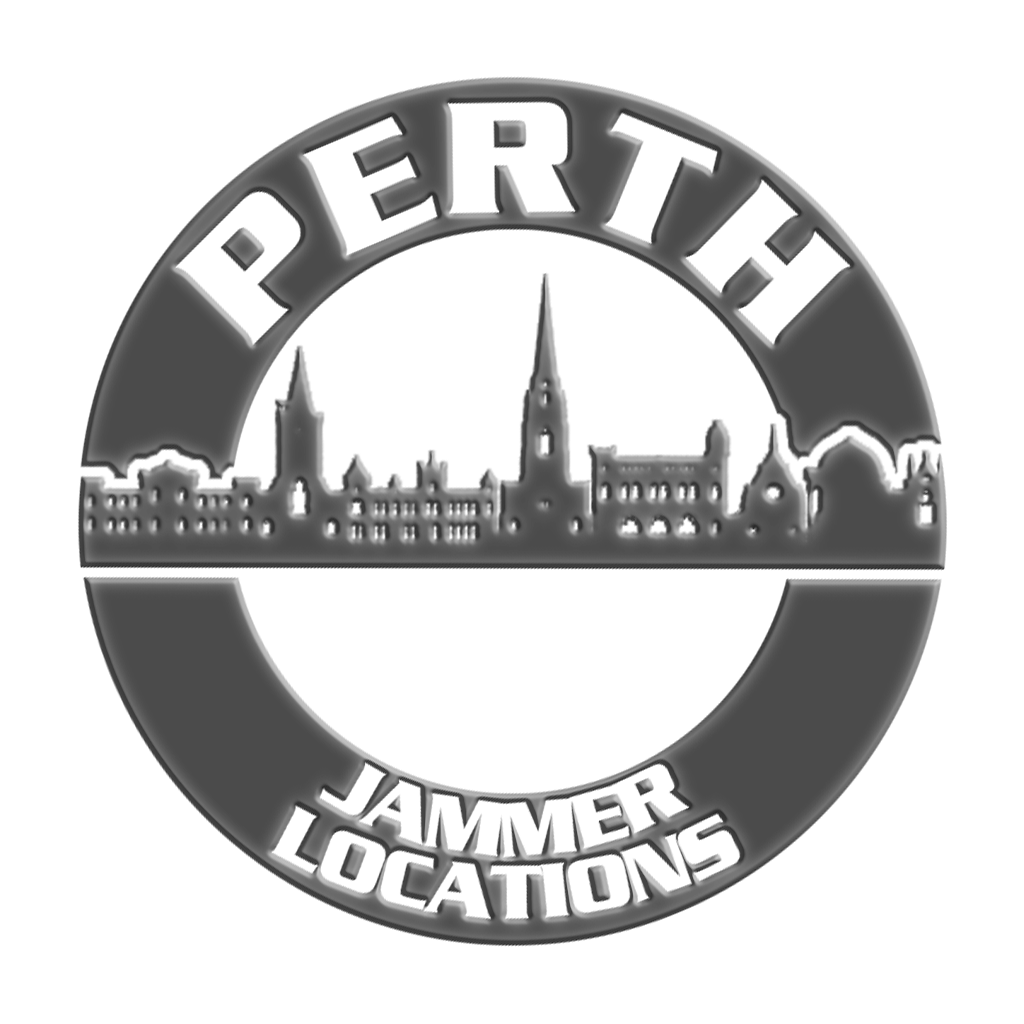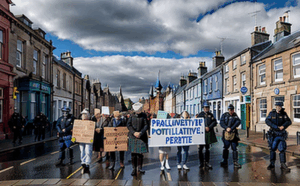Recent weeks have seen Perth become a focal point for intense public discourse surrounding immigration, marked by a series of protests and counter-demonstrations held outside two city hotels. These events have brought to the surface strong opinions and considerable debate within the community regarding asylum seekers residing in the area and the responsibilities of the local authority.
The demonstrations featured various banners and slogans, with some calling for the removal of individuals from hotels and asserting that the city is at capacity, while opposing groups advocated for compassion with messages such as “love over fear” and “refugees welcome.” The visible presence of law enforcement has reportedly increased during weekend gatherings, reflecting the heightened tensions. These gatherings, with further instances anticipated, occur amidst broader national conversations, including ongoing challenges faced by local governments elsewhere in the UK concerning the housing of migrants. Local Catalysts and National Connections
The local anti-immigration efforts in Perth appear to have gained momentum following a community assembly in North Muirton on July 30. This gathering, organized by local businessman Lee Stronach, aimed to coordinate peaceful demonstrations. Approximately 50 individuals, representing a cross-section of the local population from senior citizens to younger families, attended the meeting, expressing dissatisfaction with the accommodation of asylum seekers in Perth. Mr. Stronach previously conveyed a view that the United Kingdom, and specifically Perth, was experiencing an overwhelming influx of individuals without proper documentation, leading to concerns about public safety. He explicitly distanced his motivations from any racial prejudice.
Further amplifying the protests is the involvement of the Great British National Protest, a far-right organization led by former military personnel member Richard Donaldson. The group’s emblem prominently featured on promotional materials circulated via messaging platforms for an August 19 demonstration at the city’s Radisson Blu Hotel. Mr. Donaldson confirmed his organization’s active role, extending to financial support and promotional activities for similar events across the country. He clarified that their objective is to foster a sense of national solidarity and expressed opposition to what he termed “illegal” and “uncontrolled” mass immigration, rather than immigration itself. The organization intends to maintain a consistent schedule of protests in Perth every fortnight. In contrast, another far-right entity, the Homeland Party, despite its recent involvement in similar events in Falkirk, has denied any participation in the Perth demonstrations. Community Voices and Council Stance
The protests have prompted responses from local leaders and anti-racism advocates. Following an August 24 demonstration, Councillor Eric Drysdale, Deputy Leader of the Perth and Kinross Council and a representative of the Scottish National Party, voiced concerns to media outlets. He expressed belief that many anti-immigration protesters were not local residents but had traveled from other regions. Councillor Drysdale underscored the council’s regret over the demonstrations, suggesting they were fueled by inaccurate information. He affirmed the council’s commitment to welcoming new arrivals and ensuring their safety after the challenging circumstances they faced before reaching the United Kingdom. He also acknowledged the necessity of facilitating lawful public assembly, upholding democratic rights.
Perth Against Racism, a group actively organizing counter-protests to challenge the anti-immigration sentiment in the city, offered a nuanced perspective on the demographics of those involved in the demonstrations. A spokesperson noted that while some participants were indeed far-right activists, a significant number were local residents who do not align with extreme ideologies. The organization stressed its opposition to what it described as a contemporary cultural trend of public condemnation and blame, as well as the use of “anti-protest rhetoric” that could unfairly target working-class individuals, believing such approaches hinder constructive change and justice.
The ongoing dialogue and demonstrations highlight a complex challenge facing Perth, as community members and political figures navigate the balance between local concerns, national policies, and the fundamental rights of expression and sanctuary.
The demonstrations featured various banners and slogans, with some calling for the removal of individuals from hotels and asserting that the city is at capacity, while opposing groups advocated for compassion with messages such as “love over fear” and “refugees welcome.” The visible presence of law enforcement has reportedly increased during weekend gatherings, reflecting the heightened tensions. These gatherings, with further instances anticipated, occur amidst broader national conversations, including ongoing challenges faced by local governments elsewhere in the UK concerning the housing of migrants. Local Catalysts and National Connections
The local anti-immigration efforts in Perth appear to have gained momentum following a community assembly in North Muirton on July 30. This gathering, organized by local businessman Lee Stronach, aimed to coordinate peaceful demonstrations. Approximately 50 individuals, representing a cross-section of the local population from senior citizens to younger families, attended the meeting, expressing dissatisfaction with the accommodation of asylum seekers in Perth. Mr. Stronach previously conveyed a view that the United Kingdom, and specifically Perth, was experiencing an overwhelming influx of individuals without proper documentation, leading to concerns about public safety. He explicitly distanced his motivations from any racial prejudice.
Further amplifying the protests is the involvement of the Great British National Protest, a far-right organization led by former military personnel member Richard Donaldson. The group’s emblem prominently featured on promotional materials circulated via messaging platforms for an August 19 demonstration at the city’s Radisson Blu Hotel. Mr. Donaldson confirmed his organization’s active role, extending to financial support and promotional activities for similar events across the country. He clarified that their objective is to foster a sense of national solidarity and expressed opposition to what he termed “illegal” and “uncontrolled” mass immigration, rather than immigration itself. The organization intends to maintain a consistent schedule of protests in Perth every fortnight. In contrast, another far-right entity, the Homeland Party, despite its recent involvement in similar events in Falkirk, has denied any participation in the Perth demonstrations. Community Voices and Council Stance
The protests have prompted responses from local leaders and anti-racism advocates. Following an August 24 demonstration, Councillor Eric Drysdale, Deputy Leader of the Perth and Kinross Council and a representative of the Scottish National Party, voiced concerns to media outlets. He expressed belief that many anti-immigration protesters were not local residents but had traveled from other regions. Councillor Drysdale underscored the council’s regret over the demonstrations, suggesting they were fueled by inaccurate information. He affirmed the council’s commitment to welcoming new arrivals and ensuring their safety after the challenging circumstances they faced before reaching the United Kingdom. He also acknowledged the necessity of facilitating lawful public assembly, upholding democratic rights.
Perth Against Racism, a group actively organizing counter-protests to challenge the anti-immigration sentiment in the city, offered a nuanced perspective on the demographics of those involved in the demonstrations. A spokesperson noted that while some participants were indeed far-right activists, a significant number were local residents who do not align with extreme ideologies. The organization stressed its opposition to what it described as a contemporary cultural trend of public condemnation and blame, as well as the use of “anti-protest rhetoric” that could unfairly target working-class individuals, believing such approaches hinder constructive change and justice.
The ongoing dialogue and demonstrations highlight a complex challenge facing Perth, as community members and political figures navigate the balance between local concerns, national policies, and the fundamental rights of expression and sanctuary.


